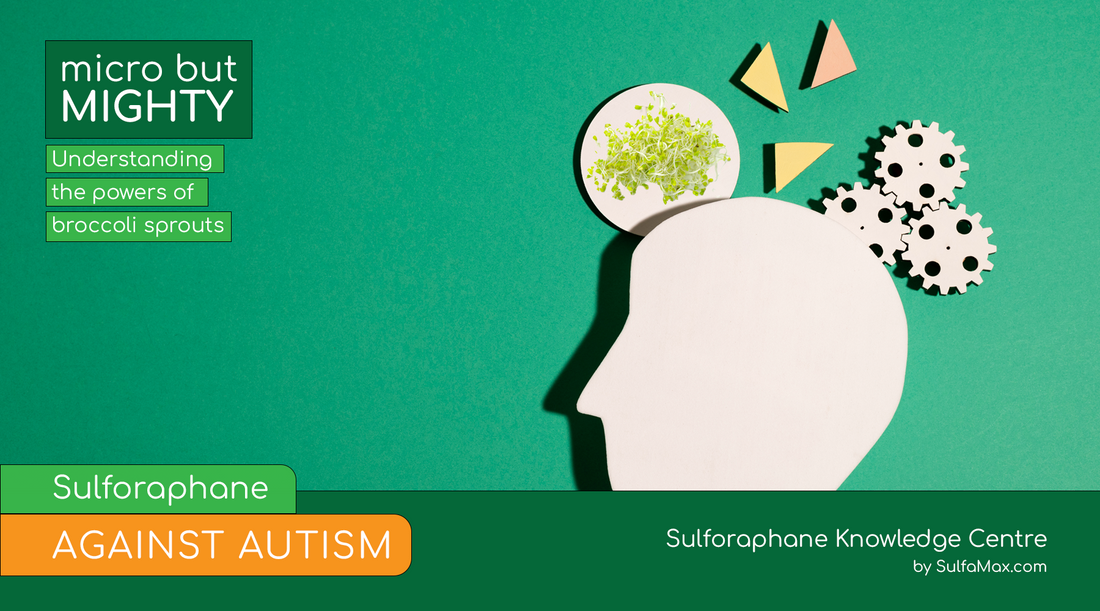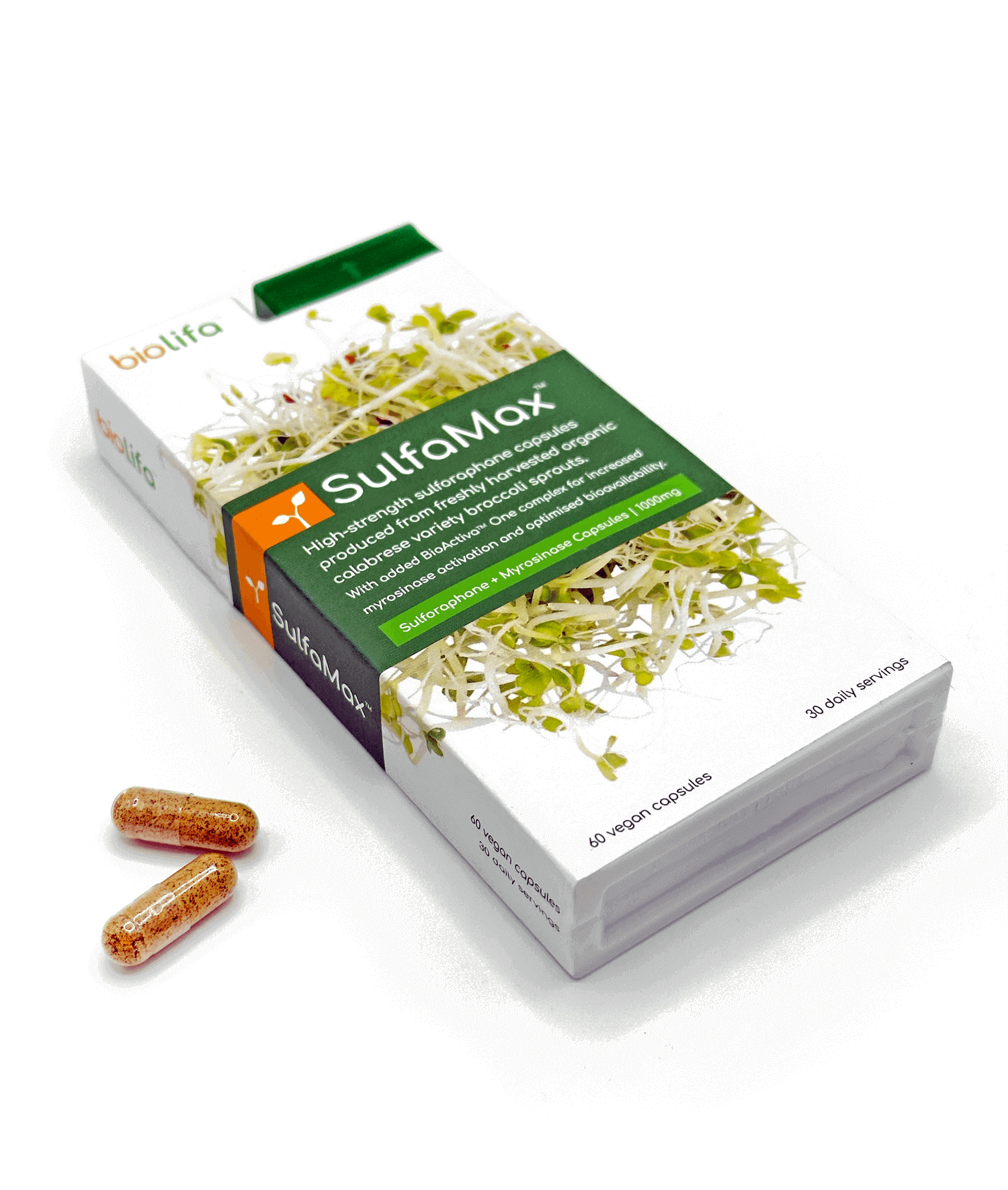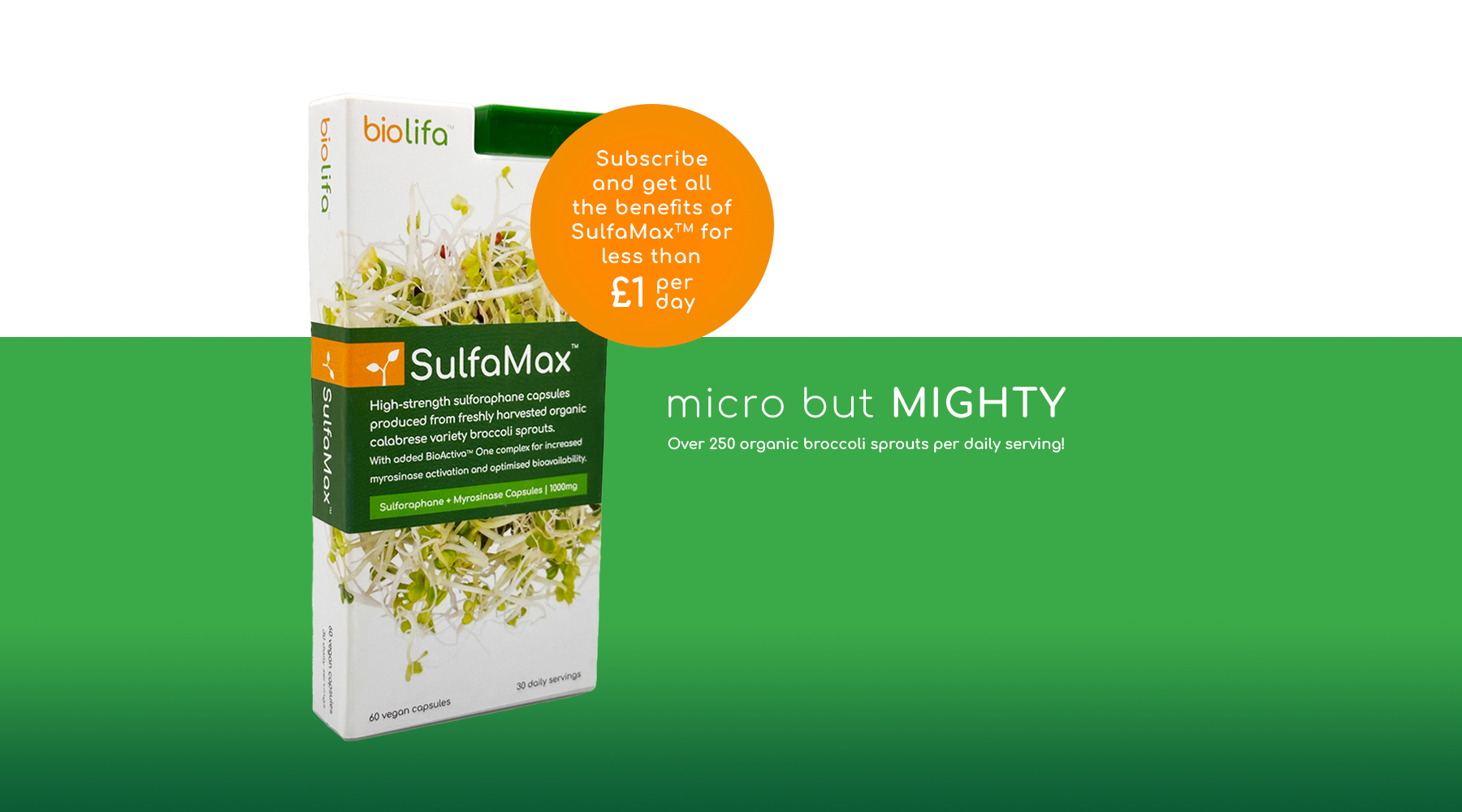Autism spectrum disorder (ASD) is a complex developmental disorder that affects communication, social interaction, and behaviour. It is estimated to affect about 1 in 54 children in the United States. While the exact cause of ASD is unknown, research suggests that a combination of genetic and environmental factors may contribute to its development. Recent studies have shown that sulforaphane, a natural compound found in cruciferous vegetables, may be beneficial in reducing some of the symptoms of autism.
Sulforaphane has been shown to have anti-inflammatory and antioxidant properties, both of which are important in reducing the symptoms of autism. Many studies have found that inflammation and oxidative stress play a role in the development and progression of ASD. Inflammation is a natural response to injury or infection, but when it becomes chronic, it can damage cells and tissues in the body. Chronic inflammation has been shown to be present in the brains of people with autism, and may contribute to the development of cognitive and behavioural symptoms.
Oxidative stress occurs when there is an imbalance between the production of free radicals and the body's ability to neutralise them with antioxidants. Free radicals are unstable molecules that can damage cells and DNA, leading to inflammation and other health problems. Studies have found that oxidative stress is increased in people with autism, and may contribute to the development of cognitive and behavioural symptoms.
Sulforaphane has been shown to reduce both inflammation and oxidative stress in the body. In a study published in the journal Translational Psychiatry, researchers found that sulforaphane improved social interaction and communication in people with autism. The study involved 44 young men with moderate to severe autism who were randomly assigned to receive either a placebo or a daily dose of sulforaphane for 18 weeks. The results showed that the sulforaphane group had significant improvements in social interaction, communication, and behaviour compared to the placebo group.
Another study published in the Proceedings of the National Academy of Sciences found that sulforaphane may improve the function of brain cells in people with autism. The study involved mice that were genetically modified to exhibit autism-like behaviours. The researchers found that sulforaphane improved the function of brain cells in the mice, leading to improvements in behaviour and cognitive function.
Sulforaphane may also help to reduce gastrointestinal (GI) symptoms in people with autism. Many people with autism experience GI symptoms such as diarrhoea, constipation, and abdominal pain. These symptoms may be related to inflammation in the gut. Sulforaphane has been shown to reduce inflammation in the gut and improve gut health. In a study published in the Journal of Clinical Psychopharmacology, researchers found that sulforaphane reduced GI symptoms in people with autism.
In addition to its anti-inflammatory and antioxidant properties, sulforaphane may also help to support the production of glutathione, a powerful antioxidant that plays a key role in detoxification. Glutathione helps to neutralise toxins and free radicals in the body, and is particularly important for brain health. Studies have found that people with autism have lower levels of glutathione in their brains, which may contribute to the development of cognitive and behavioural symptoms.
Sulforaphane has been shown to increase the production of glutathione in the body. In a study published in the journal Molecular Autism, researchers found that sulforaphane increased glutathione levels in the brains of people with autism. The study involved 40 young men with moderate to severe autism who were randomly assigned to receive either a placebo or a daily dose of sulforaphane for 18 weeks. The results showed that the sulforaphane group had significant increases in glutathione levels compared to the placebo group.
While sulforaphane shows promise in reducing some of the symptoms of autism, it is important to note that it is not a cure for the disorder. Autism is a complex condition that affects each person differently, and there is no one-size-fits-all treatment. However, sulforaphane may be a useful tool in reducing some of the symptoms of autism and improving overall health and well-being.
It is also important to note that while sulforaphane is found in cruciferous vegetables such as broccoli, it is not present in significant amounts. In order to obtain therapeutic doses of sulforaphane, it may be necessary to take a supplement. However, it is important to speak with a healthcare provider before beginning any supplement regimen, as there may be potential interactions with medications or other health conditions.
In conclusion, sulforaphane shows promise in reducing some of the symptoms of autism through its anti-inflammatory and antioxidant properties, as well as its ability to support the production of glutathione. While more research is needed to fully understand the potential benefits of sulforaphane for autism, these findings are encouraging and provide a potential avenue for further exploration. As with any treatment, it is important to work closely with a healthcare provider to determine the best course of action for managing symptoms and promoting overall health and well-being.







